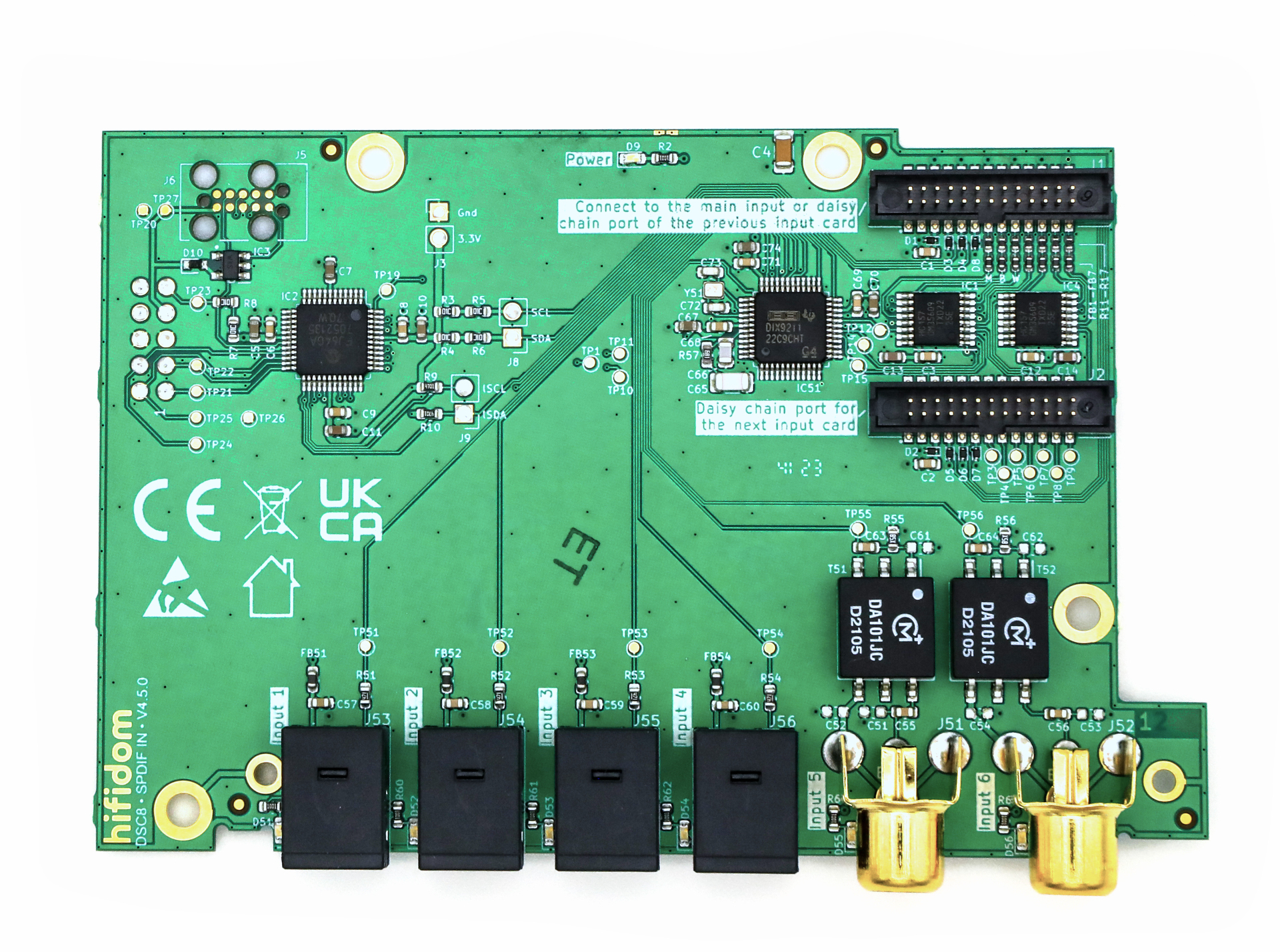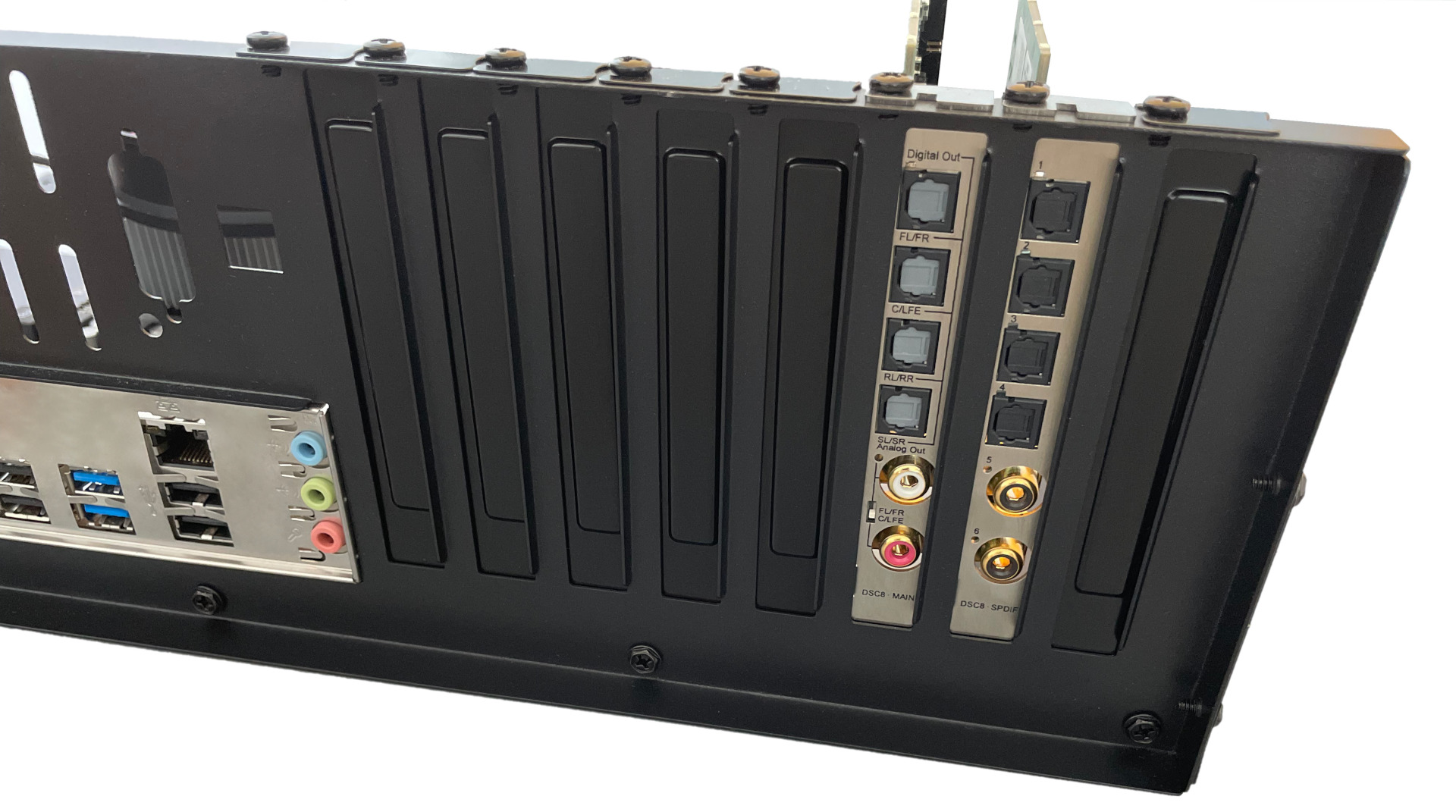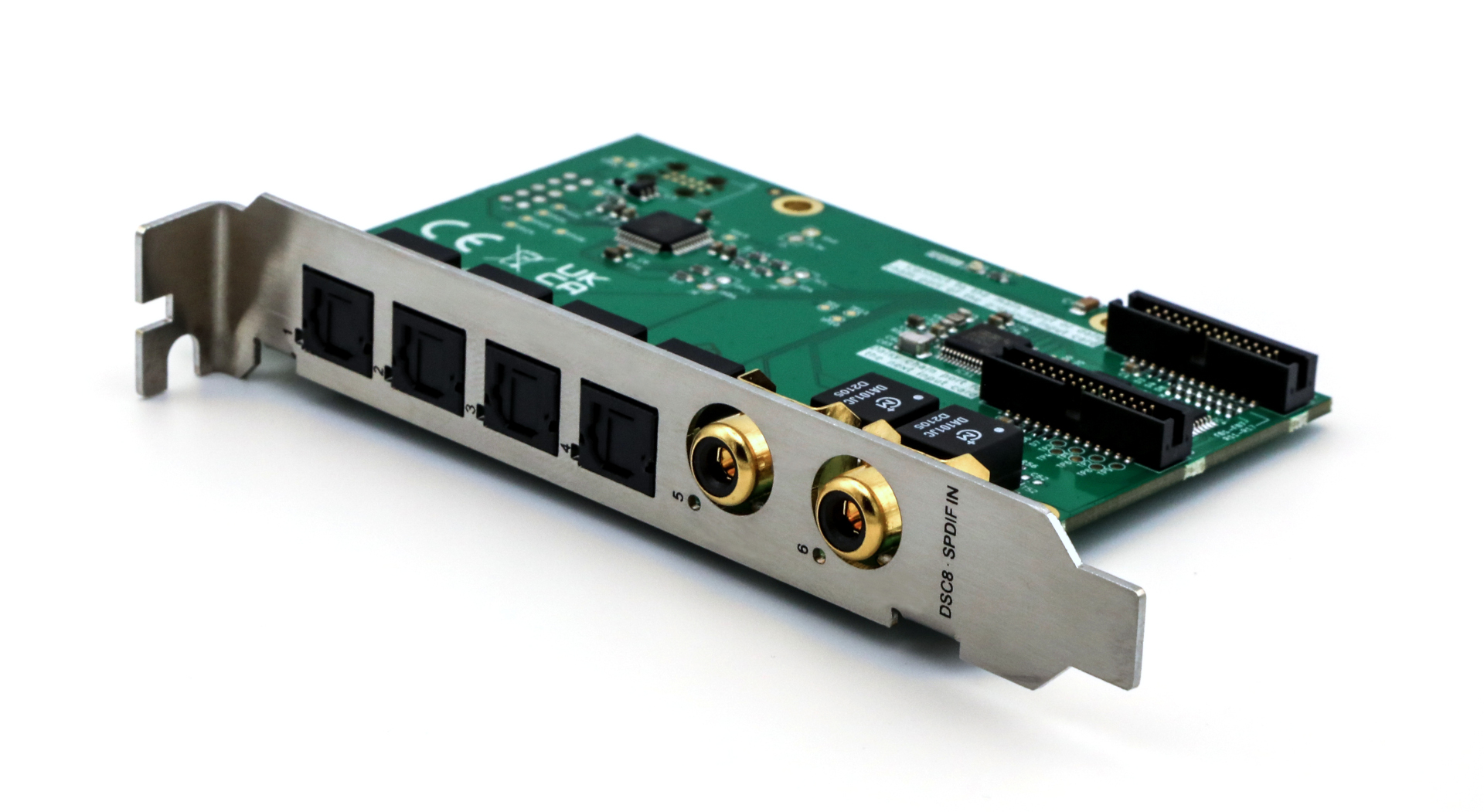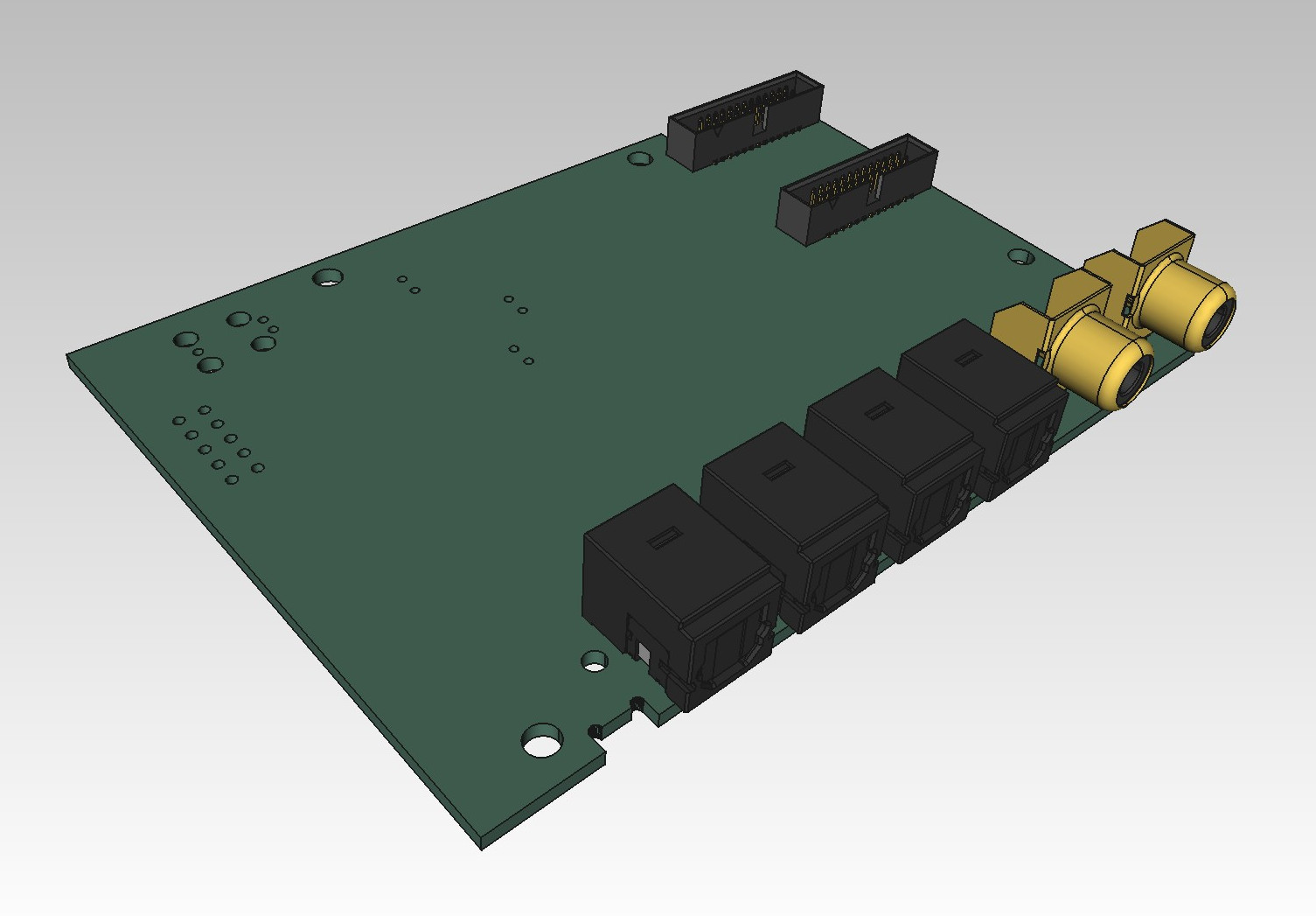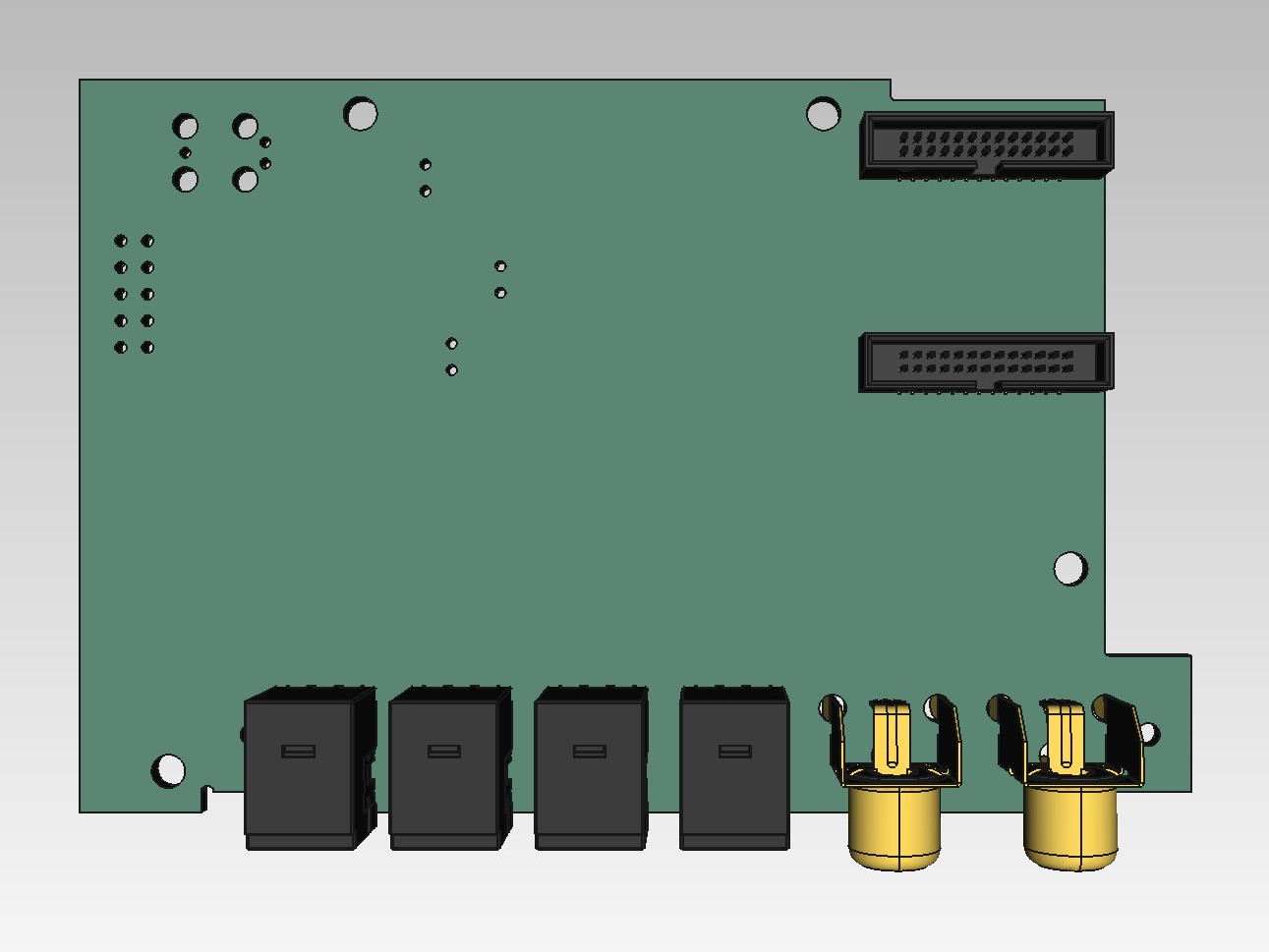DSC8 · SPDIF IN
The perfect complement
Simply connect this expansion card to the sound card DSC8 · MAIN using the ribbon cable supplied and you have 6 additional inputs. It’s that simple!
Please note the system requirements!
Open in store
6 digital inputs
The card expands the DSC8 · MAIN sound card with 4 optical TOSLINK- and 2 coaxial connections. All 6 connections are compatible with the SPDIF standard, which is widely used in digital hi-fi devices. This ensures maximum connectivity.
Bit-perfect
The data is transferred to the computer without changing or losing bits. This is particularly important for compressed surround signals, as only then can these signals be decoded.
Extremely high resolution
The inputs can receive stereo PCM signals with a resolution of up to 192 kHz and 24 bits. This allows them to reproduce a dynamic range of up to 144 dB, which is many times the dynamic range of a CD or record!
Simple installation
The expansion card is connected to the sound card DSC8 · MAIN with just one ribbon cable. The cable is included in the scope of delivery. The plug connection is protected against polarity reversal. Simple and safe!
Up to 36 inputs
You can easily connect another input expansion card to this card using a ribbon cable. In total, you can link up to 6 cards together in this way and configure up to 36 inputs for the DSC8 · MAIN sound card. That’s more than enough!
Sophisticated accessories
With the appropriate PCIe slot brackets, you can also easily install the expansion card and sound card in the PC case. With a stylish case, you can build a hi-fi system that exactly meets your needs. Let’s go!
PCIe slot bracket
The PCIe slot bracket is made of high-quality stainless steel. With the slot bracket, you can install the expansion card in a normal PC housing - ideal for building a so-called Home Theatre PC (HTPC)!
-
The computer must have at least a USB interface version 2.0 or higher.
-
The expansion card is operated in conjunction with the sound card DSC8 MAIN.
-
The requirements for the computer hardware, e.g. CPU or main memory, depend on the requirements of the operating system used. These can be found in the operating instructions for the operating system.
-
The driver of the operating system must support the features of the expansion card. Unfortunately, this is not currently the case for every operating system. Compatibility (as of November 2023) has been determined for the following operating systems
-
Linux, Kernel 3.0 or newer (available since 2012): This operating system supports all features of the expansion card.
-
*Windows*this expansion card is currently not supported by this operating system.
-
*macOS*this expansion card is currently not supported by this operating system.
-
- External dimensions
-
106mm x 70mm
- Weight
-
approx. 45 g
- permissible ambient conditions
-
at 5 % to 95 % relative humidity (non-condensing)
0 °C to +45 °C (operation)
-30 °C to +70 °C (storage) - Power consumption
-
maximum 1.5 W
- External voltage source required for the sound card
-
no
- Number of inputs
-
4 TOSLINK
2 Cinch (digital signals only) - Supported sample rates
-
44100Hz, 48000Hz, 88200Hz, 96000Hz, 176400Hz, 192000Hz
(Cinch and TOSLINK) - Supported sample widths
-
16Bit and 24Bit
(Cinch and TOSLINK) - Supported signal formats
-
S/PDIF
- Impedance of the cinch connections
-
75 Ω
- Voltage level at the cinch connections
-
minimum 0.2 Vpeak-to-peak
maximum 0.6 Vpeak-to-peak
Suitable software must be installed on the computer to view the 3D models.
Simplified 3D model
With the help of this 3D model, you can easily model your own housing for the expansion card, for example. The model is available in STEP format. You can open the file with a program such as FreeCAD.


